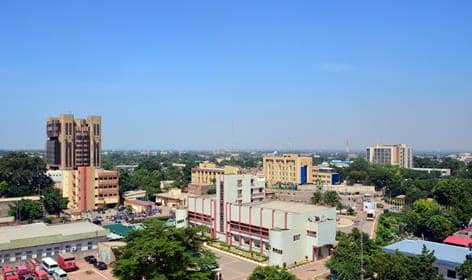Universal access to a secure electricity supply is essential for the economic development and welfare of the population of Burkina Faso. Rapid urbanisation and an increased use of air conditioning (AC) has led to an 8.4% annual increase in the country’s electricity demand since 2010. The nation’s generation capacity is unable to keep up, resulting in frequent power outages, and a 45% dependence on energy imports creating high and volatile costs for consumers.
An uninterrupted and affordable electricity supply would increase household incomes; improve education of children; save time and money collecting alternative fuels, particularly for women; improve the productivity of businesses; and accelerate the installation of new electricity connections. These direct benefits would reduce current rates of social and economic poverty, unemployment, illiteracy and emigration in the country.
Upgrading the country’s electricity generation and supply system is a long-term challenge, but in the short-term, our project partners, the Government of Burkina Faso and national electricity utility, SONABEL, believe the implementation of demand side management (DSM) programmes (electricity efficiency and flexibility) in the housing sector (which accounts for 33% of national electricity use) would better balance supply and demand and unlock these beneficial development outcomes.
The Government has also committed to reduce electricity demand and improve energy efficiency in homes to cut Green House Gas emissions and help mitigate the effects of climate change, a phenomenon that disproportionately effects the Sahel region where Burkina Faso is located and is itself further exacerbating electricity demand as households are increasingly using AC to stay cool.
However, at present, there is almost no data on household electricity demand, efficiency or flexibility in Burkina Faso for a successful, evidence based implementation of DSM. The aims and objectives of this research and partnership building project will address this substantial gap in knowledge. The project has been developed collaboratively with the Government of Burkina Faso and SONABEL to ensure the research delivers the data and evidence they need.
For the direct research, a socio-technical residential electricity study will be undertaken with 100 households in Ouagadougou. Field measurements of electricity demands and internal temperatures of homes will provide empirical insights into households’ electricity load profiles, use of AC, time-of-use and peak loads. An efficiency and flexibility survey will be completed to understand households’ current practices and opportunities for improving energy efficiency at home, as well as identifying load shifting and curtailment actions that households would be willing to implement to prevent power outages. Diversity in responses due to the socio-technical characteristics of the households and dwellings will be studied.
Simultaneously a range of partnership building activities (e.g. research visits, project meetings, workshops, mini conference) will be undertaken. These are tailored to the stage of the project programme to either inform the delivery of the direct research or form a platform for discussion, dissemination and impact generation of the research findings.
An international network of 6 Universities will be created where future research on energy and development challenges in Burkina Faso and other African countries will stem. The network will also act as a platform for ongoing mutually beneficial exchange of knowledge and skills.
To deliver development impact within the project’s life time, workshops with the Government and SONABEL will turn the research findings into evidence based recommendations to inform future policy and DSM programmes. Project partner GGGI will use their extensive network, to engage wider stakeholders and beneficiaries, so a range of routes to impact are achieved.
University of Reading PI: Dr R.V. Jones
PDRA: TBC
Partners: International Institute for Water and Environmental Engineering (Burkina Faso), Government of Burkina Faso, SONABEL National Electricity Society (Burkina Faso), Global Green Growth Institute (Burkina Faso), University of Energy and Natural Resources (Ghana), Kwame Nkrumah University of Science and Technology (Ghana), Obafemi Awolowo University (Nigeria), Strathmore University (Kenya)
Funding: EPSRC (£202,110)
Start and End Date: May 2024 – April 2026

